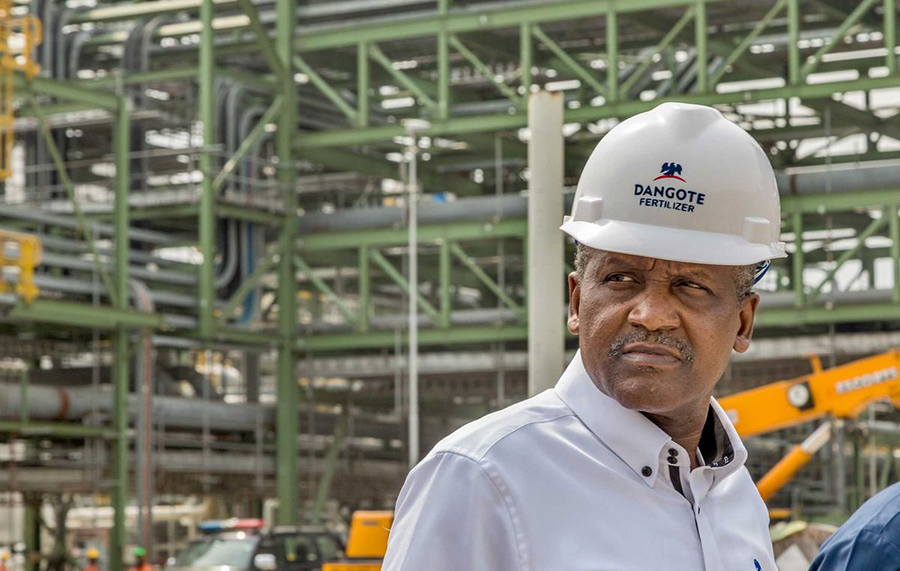Why Nigeria wants 20% equity in Dangote refinery – NNPC GMD
- August 25, 2021
- 0
The Group Managing Director of the Nigerian National Petroleum Corporation (NNPC), Mele Kyari, has said the decision to buy 20 per cent stake in Dangote refinery by the
The Group Managing Director of the Nigerian National Petroleum Corporation (NNPC), Mele Kyari, has said the decision to buy 20 per cent stake in Dangote refinery by the

The Group Managing Director of the Nigerian National Petroleum Corporation (NNPC), Mele Kyari, has said the decision to buy 20 per cent stake in Dangote refinery by the Federal Government was to ensure the plant buys crude from Nigeria.
Kyari, who appeared before the House of Representatives Committee on Finance on Wednesday, during an interactive session on the Medium Term Expenditure Framework (MTEF) in Abuja, said the refinery had no obligation to buy crude from Nigeria prior to that decision.
He explained that the 20 per cent stake valued at $2.7 billion is tied to the refinery buying crude oil from Nigeria, adding that without the equity, Dangote refinery could buy cheap crude from Venezuela and import it into the country.
The GMD disclosed that the country had no strategic storage, noting that the equity stake wiould ensure that the country had a seat on the board of the company.
He also disclosed to the committee that Aliko Dangote, the billionaire owner of the refinery, was against the 20 per cent equity.
“He (Dangote) has the right to buy oil from anywhere,so you can’t force him to buy. We structured our equity participation that this refinery must buy at least 300,000 crude from us. This guarantees your market.
“Today, every country is struggling to secure market for their crude oil. This refinery does not owe us any responsibility if we don’t have this arrangement. That is why we tied our participation to the fact that this refinery must buy from us.
“This refinery is a very complex refinery; complex in our industry because it can crack any crude. So, it can buy any cheap crude from anywhere, and bring it into this country and leave you to your crude.
“We simply saw this opportunity, we said we are not going to take any government money to put into this. We are borrowing money from the AfriExim consortium to pay for our initial payment and also tied subsequent payments to him buying from our production.
“Our decision to take equity in the Dangote refinery was a very calculated and conscious decision. First, there is no resource-dependent country like ours anywhere and with a national oil company, will have a venture of this size and magnitude with its very clear security implications that is situated in a free trade zone. Literally, this refinery is not in this country.
“Today, we import 100 per cent of our refined products into this country. You now have a venture that will produce close to 50 million litres of petroleum products in this country where energy security is an issue. From my personal knowledge, the U.S. keeps stock on the ground that government owns it and that government pays for it and keeps it.
“As we speak today, we don’t have any strategic storage or arrangement. So no country will allow any venture of this nature to exist without having a seat on its board.
“Secondly, this company is situated in the free trade zone. The meaning of this is that there are several incentives granted to this business. If you look at our investment, total investment, of about $2.7 billion, not $5 billion, the total stake of 20 per cent is $2.7 billion, if you are to build 20 per cent of that capacity, which will be around 130 barrels per day capacity refinery.
“It is simply impossible to build a refinery of that capacity with that amount of money. This is not just a refinery, but a refinery with a petrochemical component. So somebody has done all the ‘jaki work’ for us, and we are taking a stake in it,” the GMD said.
Kyari further stated that the decision to have a stake in the refinery was at the instance of the NNPC, adding that “Mr Dangote may not be excited with it.”
“I can confirm Mr Chairman, taking stake was at the instance of the NNPC.
“I believe up to this moment, Mr Dangote does not want us to take equity in this plant.
“This is a very informed policy decision that will guarantee security because we will have a seat—we will have right to 20 per cent of the production from this facility,” Kyari added.
Reacting, the Chairman of the Committee, James Faleke said the National Assembly would consider creating a law to protect Nigeria’s assets.